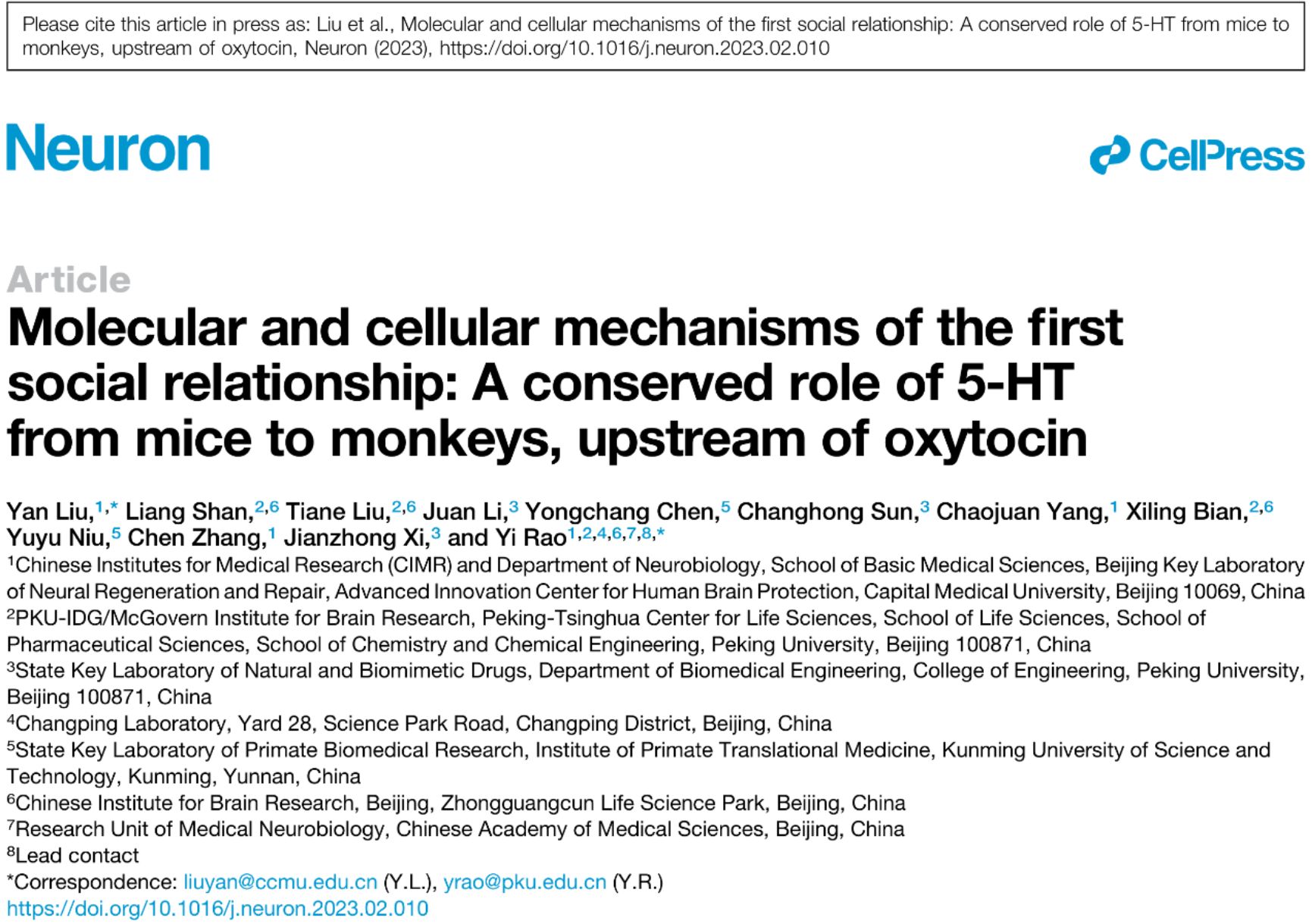Prof. Yi Rao:Molecular and cellular mechanisms of the first social relationship:A conserved role of 5-HT from mice to monkeys, upstream of oxytocin

Abstract
Maternal affiliation by infants is the first social behavior of mammalian animals. We report here that elimination of the Tph2 gene essential for serotonin synthesis in the brain reduced affiliation in mice, rats, and monkeys. Calcium imaging and c-fos immunostaining showed maternal odors activation of serotonergic neurons in the raphe nuclei (RNs) and oxytocinergic neurons in the paraventricular nucleus (PVN). Genetic elimination of oxytocin (OXT) or its receptor reduced maternal preference. OXT rescued maternal preference in mouse and monkey infants lacking serotonin. Tph2 elimination from RN serotonergic neurons innervating PVN reduced maternal preference. Reduced maternal preference after inhibiting serotonergic neurons was rescued by oxytocinergic neuronal activation. Our genetic studies reveal a role for serotonin in affiliation conserved from mice and rats to monkeys, while electrophysiological, pharmacological, chemogenetic, and optogenetic studies uncover OXT downstream of serotonin. We suggest serotonin as the master regulator upstream of neuropeptides in mammalian social behaviors.
Highlights
Tph2 gene knockout in mice, rats, or monkeys reduced maternal affiliation by infants
Serotonergic neurons and oxytocinergic neurons were activated by maternal odors
Serotonergic neurons in the RN activate oxytocinergic neurons in the PVN
5-HT acts upstream of oxytocin in regulating maternal affiliation by infants
Original link: https://www.cell.com/neuron/fulltext/S0896-6273(23)00114-9